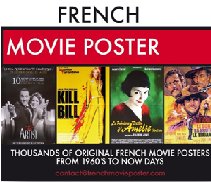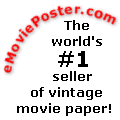The
first Hong Kong film was Zhuangzi Tests His Wife in 1913. The
director was Lai Man-Wai, called the Father of Hong Kong Cinema, who
also played the wife himself.
Unfortunately
the Hong Kong film industry didn't take off until after World War
II.
In the 1950s and early 1960s, Cantonese movies were the dominant.
Mostly Wu Xia films with cheesy props and special effects using crude
animation drawn on top of the film. Drama and Cantonese opera on film
was some of the most popular The Wah Tat Studio was the dominant studio.
In
the late 1960s and early 1970s, the industry changed to mostly Mandarin
movies. The Shaw Brothers Studio and the Golden Harvest Studio were
the most popular. Other popular areas were a musical genre called
Huang2 Mei2 Diao4 and love stories based on novels by Chiung Yao.
In
the late 1970s, a new generation of Wu Xia film probably started by
The dragon inn with a lot of wire work and acrobatic moves. This brought
about a come-back of Cantonese movies. The most popular films were
Michael Hui with his comedies, Kung fu, Police/Criminal, and ghost
stories.
During
the 1990s, the Hong Kong film industry underwent a significant decline,
caused by the Asian economic crisis which dried up traditional sources
of film finance. Revenues generated by the Hong Kong motion picture
industry halved during this period. Some of the decline was also caused
by Hollywood in the United States signing popular movie figures such
as John Woo, Jackie Chan and Chow Yun-Fat to make movies directly
for the U.S. domestic market.
In
an effort to halt the decline of the local industry, the Hong Kong
Government in April 2003 introduced a Film Guarantee Fund as an incentive
to local banks to become involved in the motion picture industry again.
The guarantee operates to secure a percentage of monies loaned by
banks to film production companies. The Fund has received a mixed
reception from industry participants, and less than enthusiastic reception
from financial institutions who perceive investment in local films
as high risk ventures with little collateral.
Some
positive results has recently produced hits such as Stephen Chow's
Shaolin Soccer which broke new ground in the use of special effects.
Some
major films that were shot in Hong Kong include: Macao (1952),
Love is a Many-Splendored Thing (1955), Ferry to Hong Kong
(1959), The World of Suzie Wong (1960), Lord Jim (1965),
You Only Live Twice (1967), Enter the Dragon (1973),
The Man with the Golden Gun (1974), Revenge of the Pink
Panther (1978), Year of the Dragon (1985), Tai-Pan
(1986), Double Impact (1991), Mortal Kombat (1995),
Rush Hour (1998), Rush Hour 2 (2001), Spy Game
(2001), and Die Another Day (2002),





